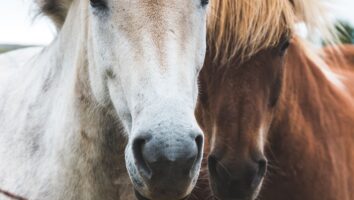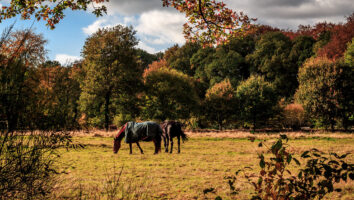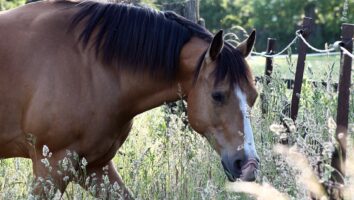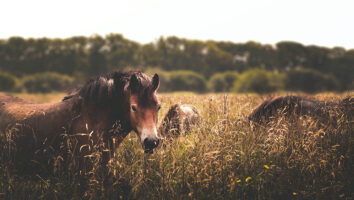Horse
Preparing veteran horses for winter: teeth, toes, tums and tetanus
Veteran horses are generally categorised as those aged over 15 or 20 years old. Approximately 40% of the UK horse population is currently in this age bracket. As a consequence of ageing, certain…
Ticks and your horse
Ticks are small, blood sucking parasites of mammals. This can include horses, dogs, cats and humans. They are increasingly common in the UK. The three most common species of tick are: Ixodes ricinus…
Seasonal Allergic Rhinitis in horses: What to look for and how to manage it
As the sun begins to shine, bees become busier, and flowers begin to blossom, one thing is becoming certain - Spring is upon us. Whilst most of us will welcome this change in season, embracing the…
Equine Metabolic Syndrome (EMS)
Equine Metabolic Syndrome (EMS) is the name given to a group of clinical conditions, similar to human metabolic syndrome and Type 2 Diabetes. A proportion of horses are genetically at risk of…
How to create a safe New Year's Eve for your horse
New Year's Eve and other celebrations can bring mixed feelings for horse owners. Many people will be familiar with their horse’s behaviour. However, it can be difficult to know how they will react…
6 important winter tips for horse owners
When it is cold and snowing, there are some important things to keep in mind in the stable and when handling horses. Here we share some useful tips and advice for horse owners this winter!








